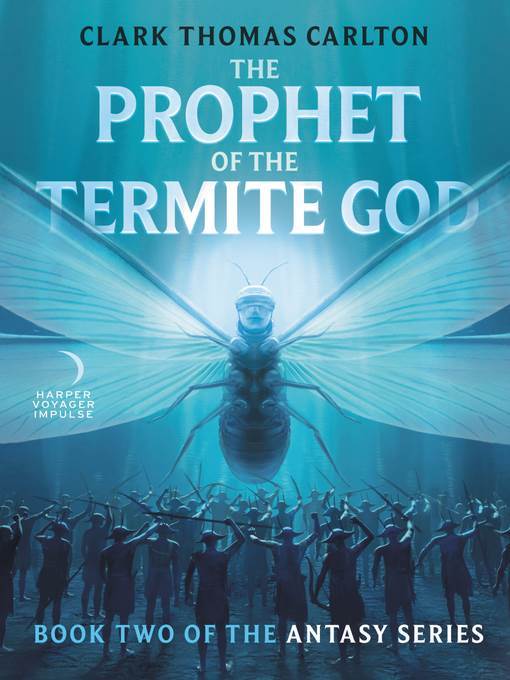
The Prophet of the Termite God
Book Two of the Antasy Series
کتاب های مرتبط
- اطلاعات
- نقد و بررسی
- دیدگاه کاربران
نقد و بررسی

An epic tale of tiny humans and warring insect empires continues in this sequel. Carlton's (Prophets of the Ghost Ants, 2011) saga picks up where the earlier novel left off: in a world called Dranveria where humans exist alongside various species of insects (they're all roughly the same size). Here, a former lower-caste, midden-slave human named Anand finds himself in the unlikely position of national savior. He led an insect army to defend his home of the Slope against the invading forces of Hulkrish and their Prophet-Commander, his own cousin Pleckoo. Against all odds, Anand was victorious but Pleckoo isn't dead--the threat posed by the followers of the god Hulkro remains. This latest volume employs a split narrative in order to trace the separate adventures of Anand--who must deal with the many problems facing his fledgling kingdom, from new rumblings of war to a building refugee crisis and potentially deadly palace intrigue--and Pleckoo, now a fugitive. Pleckoo seemingly has the whole of Dranveria against him--except for Hulkro, in whose service he is still a vision-driven fanatic, despite dream-world visitations from other insect deities. "Hulkro does not rule the Netherworld. I do," one god tells him. "Where is Little Termite now?" "High above, in the night sky, where He rules over all," the faithful Pleckoo responds. "You have said He is the only god," the rival deity answers, "yet here I am, deciding your fate for eternity." The proceedings are suffused with the complicated dynamics of clashing religions, and this volume in the Antasy series places slightly more emphasis on Pleckoo's story, making it an intriguing counterpoint to the previous installment. As in that earlier novel, Carlton displays in his insect high fantasy tale a completely assured-- and totally infectious--imagination while employing precisely controlled narrative pacing. There's a minor strand of purple prose running through the book that can easily be read as a winking homage to the hyperventilation of classic pulp fantasy authors like Edgar Rice Burroughs ("Knowing he was alone, Pleckoo fell to his hands and knees and wailed. He choked on his own sobbing, hoping to cough out the hundred thousand demons that warred inside him" and Anand's reflection on his predicament later in the story: "My wife is the pregnant prisoner of the diseased man inflicting his madness on the world"). This kind of rhetorical playfulness perfectly serves the boilerplate of the plot, and it's expertly balanced with Carlton's insightful realization of the internal facets of his realm. Anand, for instance, is still scornfully referred to as "Roach Boy" by some of the very people he tried to help. When he asks what he's done to warrant such hostility, he's told: "What haven't you done? You've turned our lives downside up. We was fine in the old way, as good as anybody else in the midden." The characters of Pleckoo and Anand dominate the volume's two scenarios, but the tale unfolds in a way that very naturally expands to embrace not only a host of secondary characters, but also an abundance of intricate worldbuilding. Readers should keep in mind that the titles of these novels are apt: No detail of Dranveria's vast theological mosaic is left unexplored. A dense, complex, and engrossing second installment of a genuinely promising high fantasy series.
COPYRIGHT(2019) Kirkus Reviews, ALL RIGHTS RESERVED. (Online Review)

























دیدگاه کاربران